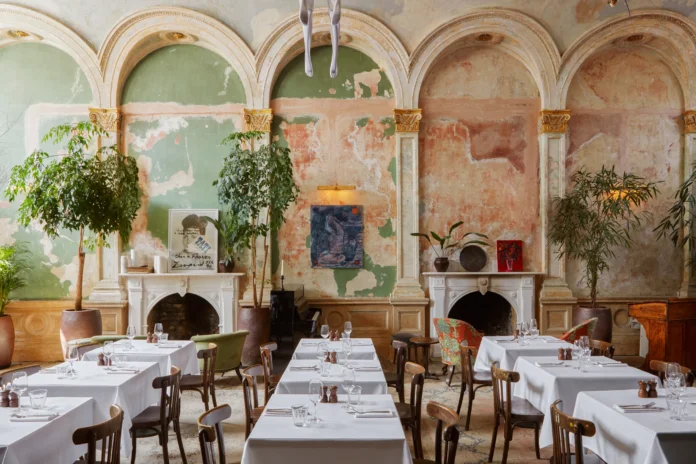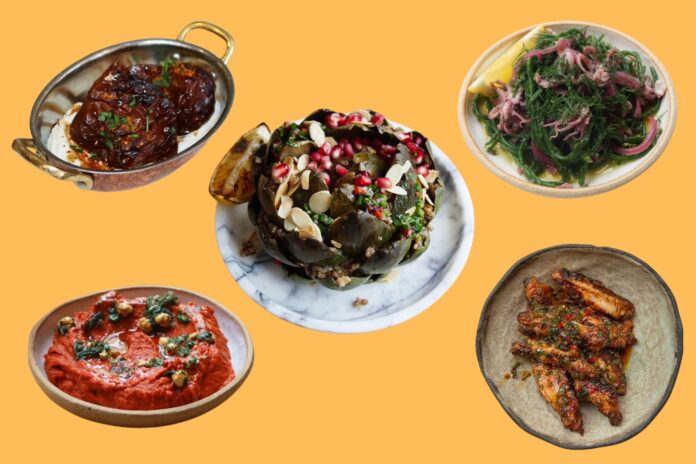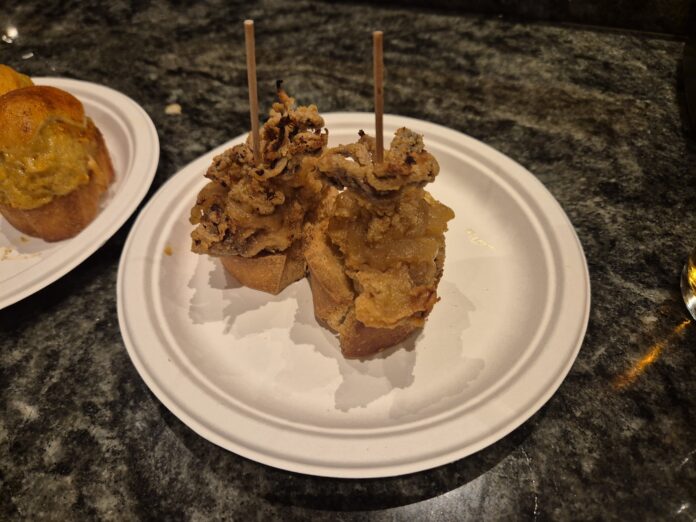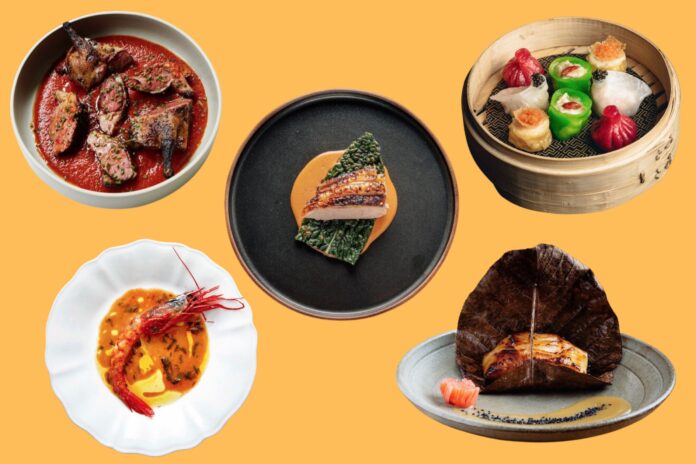So, you’ve just finished the third season of The Bear, and you still want to become a chef? Can we commend you on your bravery…
The one-two sucker punch of Brexit and a global pandemic has led to the hospitality industry being woefully understaffed. Though this has sadly left many restaurants struggling, if we’re doing our best to look on the bright side, then for those who have been considering entering the profession, finding a job has – arguably – never been easier.
Whilst the hours are notoriously long and the work physically and mentally demanding, being a chef is also a hugely rewarding job, with a clear career progression and the opportunity to learn on the job, each and every day.
Fortunately, the industry has been making moves to address its working conditions, with many top kitchens in recent years reducing hours and prioritising worker welfare. In many ways, there’s never been a better time to don that apron, and if you’re an aspiring chef, here’s how to land your first job in a professional kitchen.
Consider KP’ing
Enthusiasm and a thirst (or rather, hunger) for knowledge are generally more valued than a smattering of prior experience for aspiring chefs seeking their first role.
That said, if you’re keen to get your foot in the door and learn to love the ebb and flow of a professional kitchen, you could apply for a pot washer or kitchen porter role and wait patiently for that moment when the kitchen is low on numbers and some potatoes need peeling!
So many of the world’s top chefs started this way, taking first jobs within restaurants doing pot washing or bussing, and then transitioning into the kitchen proper. Some top names who followed this path include Ferran Adria, Samin Nosrat, Anthony Bourdain, Thomas Keller, Clare Smyth and Gordon Ramsay, to name but a few.
Read: 5 chef’s workflow hacks to make cooking at home easier
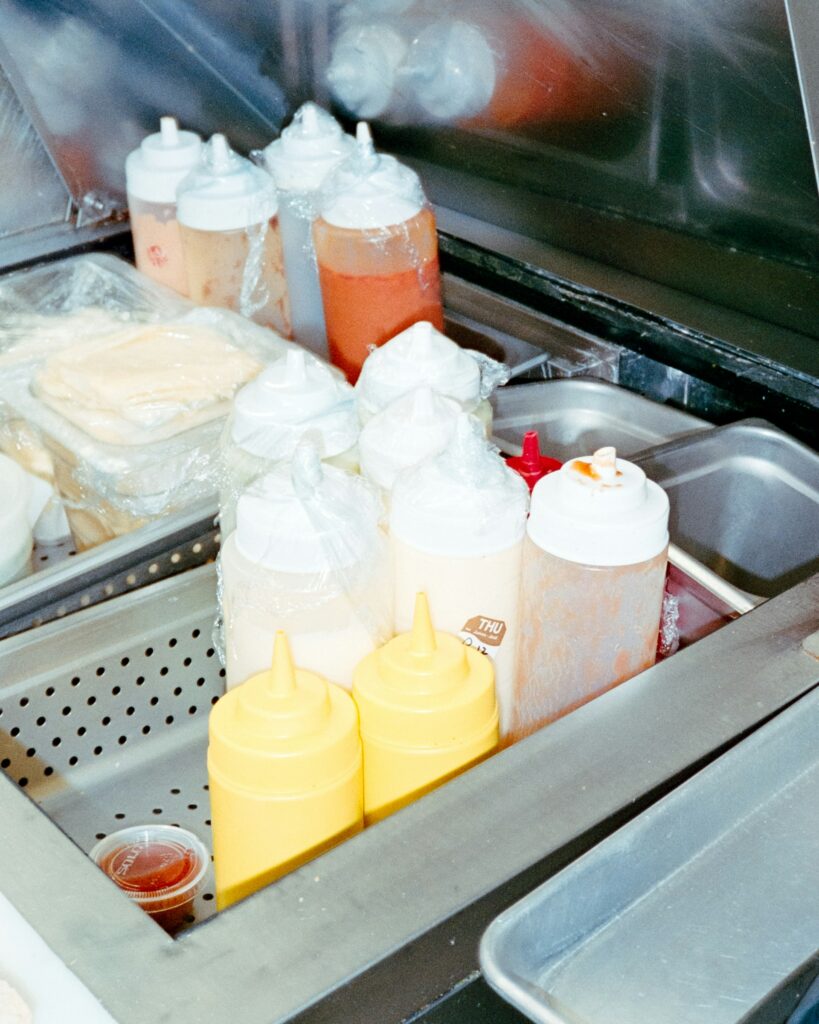
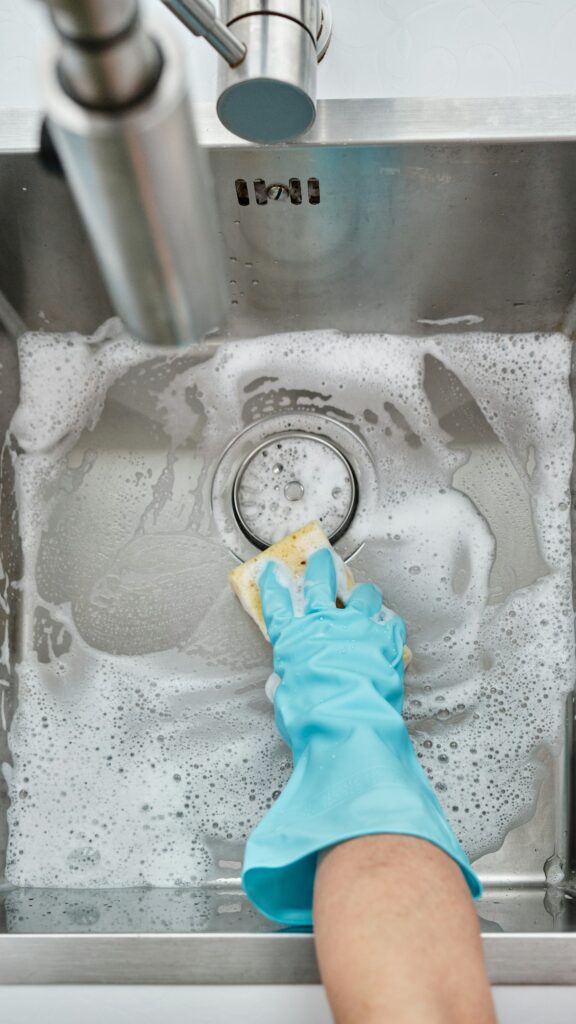
Cooking College & Culinary Institutions
In the UK, there are numerous reputable cooking colleges and culinary institutions where you can hone your skills and gain the necessary qualifications. Some of the well-known institutions include:
- Le Cordon Bleu London: Renowned for its comprehensive culinary arts programmes, Le Cordon Bleu offers a range of courses from diplomas to short courses, covering both cuisine and patisserie.
- Westminster Kingsway College: This college has a long history of producing top chefs and offers a variety of courses in culinary arts, including professional chef diplomas and apprenticeships.
- City of Glasgow College: Known for its excellent facilities and strong industry links, this college offers a range of culinary courses, from introductory to advanced levels.
In addition to traditional cooking colleges, there are also chef-led culinary arts programmes that provide an immersive and intensive learning experience. These programmes are often led by world-renowned chefs and offer a unique opportunity to learn from the best in the industry. Some notable examples include:
- The Raymond Blanc Cookery School: Located at Le Manoir aux Quat’Saisons in Oxfordshire, this cookery school offers a variety of courses led by Raymond Blanc and his team. The courses range from one-day workshops to longer programmes, covering a wide array of culinary techniques and cuisines.
- The Gordon Ramsay Academy: Based in Woking, Surrey, this academy offers a range of courses for aspiring chefs of all levels. Led by Gordon Ramsay and his team of expert chefs, the academy provides hands-on training in a professional kitchen environment.
- École Ducasse: A Paris institution founded by the legendary chef Alain Ducasse, École Ducasse offers a range of programmes from short courses to full-time diplomas, focusing on both culinary arts and pastry arts. The school has campuses in France and is known for its rigorous training and emphasis on excellence.
Read: What fundamental skills are taught at a beginner’s cooking class?

The Brigade
Alternatively, if you feel you’ve got a decent foundational knowledge, or if you’ve recently finished catering college or completed a professional cooking course, then you can send emails and make calls to local restaurants asking if they have any commis chef positions that need filling.
This is the first rung on the ladder in a professional kitchen, after which you’ll work your way up the ranks.
Whilst you”ll see hundreds of job descriptions online and a whole load of terminology about different roles, in the UK a kitchen ‘brigade’ usually follows this hierarchy:
- Commis chef – An apprentice chef, always learning, always peeling…
- Demi Chef-de-Partie – An assistant chef, of sorts, to the Chef-de-Partie, but sometimes allowed to be in charge of their own section
- Chef-de-Partie – This is when things get serious. As a CDP, you’ll be in charge of your own section, whether it’s larder, salads, fish, meat, cold starters, mains….
- Junior Sous Chef – A Sous Chef in the making
- Sous Chef – The kitchen’s second in command and the Head Chef’s right hand person. The Sous Chef will often run the pass, manage the team, and take care of the inventory and ingredients orders. A pivotal role
- Head Chef – The Head Chef runs the kitchen, sets the menu and (in an ideal world!) makes the final call on all matters related to food. They are also responsible for managing the budget
- Executive Chef – Some larger organisations also have an executive chef
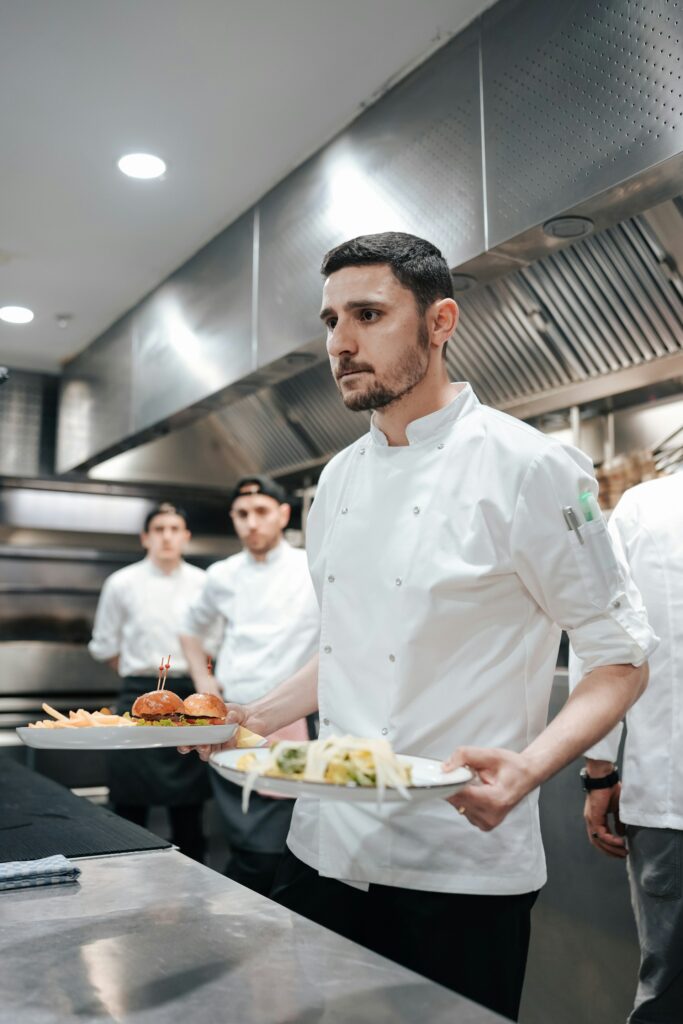
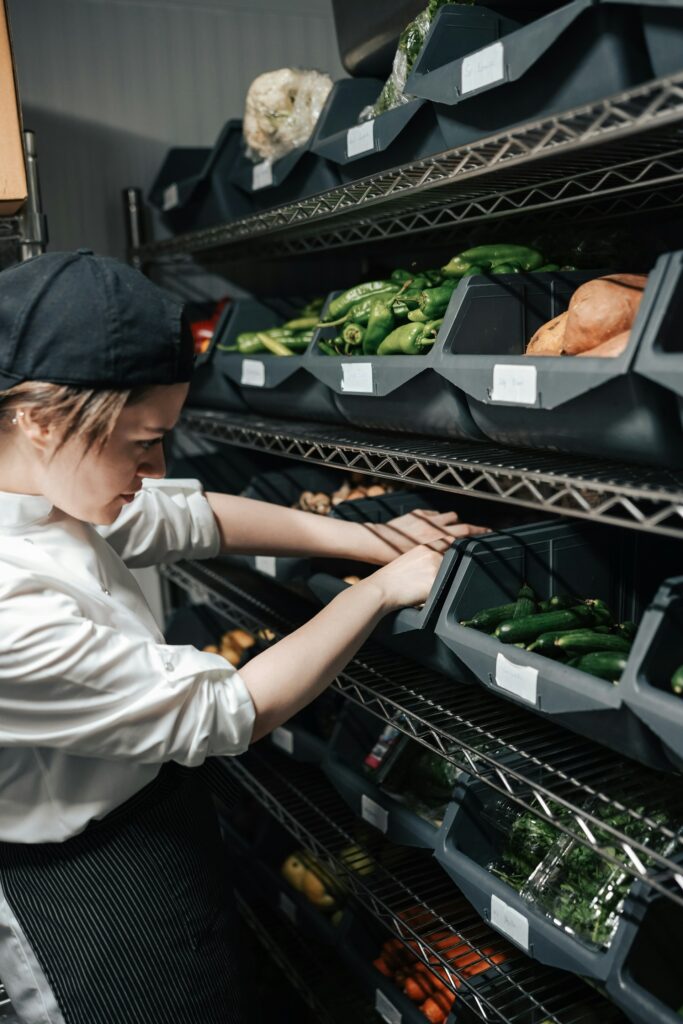
Though most aspiring young chefs will nowadays enquire about potential commis chef roles via email or phone, there’s still much to be said for pitching up in person, knocking on the door and asking to speak to the chef in charge that day. It shows confidence and commitment, and will almost always be looked upon favourably.
As we mentioned earlier, previous experience is a benefit, and chef’s qualifications are a plus, too, but increasingly, professional kitchens value enthusiasm and discipline more than established skills and high profile names on the CV. Skills can be taught on the job, after all.
That said, certification in food hygiene is essential, whether that’s a Level 2 Food Safety & Hygiene for Catering (required) or a Level 3 Food Safety and Hygiene for Supervisors (recommended).
Trial Shifts
Whichever way you go about asking a restaurant for a commis chef position, if there’s one going, it’s almost certain you’ll be offered a trial shift so the head or sous chef can get a measure of the way you work. This is your chef’s interview, and unfortunately, this is usually unpaid.
Though the chef in charge will, of course, be looking at your skillset, your trial shift will be as much about assessing your attitude, your willingness to learn and how you fit in with the rest of the team. This is also your chance to test the waters of a new workplace, to see if it feels right for you.
A trial shift will generally last for a single kitchen shift – morning prep and lunch service, or afternoon prep and dinner service. Though you certainly won’t be expected to run a station during service, you will be expected to muck in and help the Chef-de-Partie to whom you’ve been assigned – this is your chance to show enthusiasm and inquisitiveness, so ask plenty of questions, roll your sleeves up and get stuck in.
Don’t treat your trial shift as if simply surviving it is a success. Instead, make a fine first impression with your eagerness to get involved. That said, you should be honest with the chef you’re working under about your limitations, too; if you’re asked to cook something you’re not confident in, or you’re handling an ingredient you’ve never seen before, it’s always best to be honest about it.
Read: 6 IDEAL chef’s secrets to life your home cooking to the next level
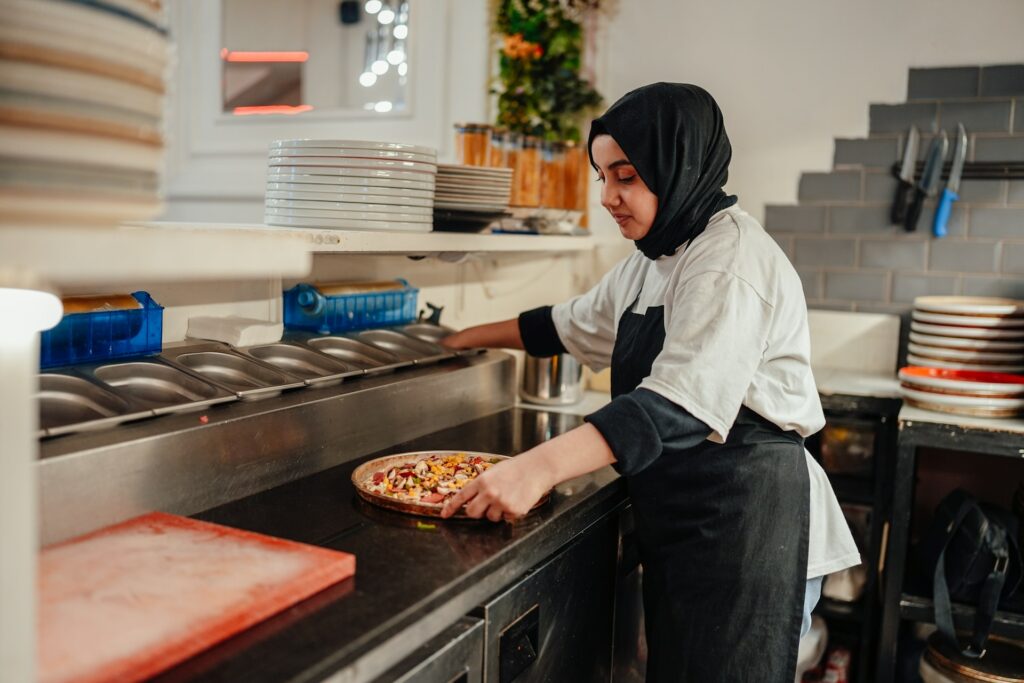
Stages
Alternatively, to get a feel for what it’s like to work in a professional kitchen, you can contact local restaurants and see if they have a stagiaire program in place. Staging refers to unpaid interns positions that see a chef work for a short period in a new kitchen, with the view to learning new techniques and understanding a different style of cuisine to what they’re familiar with.
Even for experienced chefs, this is a popular thing to do, as it gives cooks a chance to step out of their comfort zone, learn new skills and network. High end, Michelin starred kitchens regularly run stagiaire programs accordingly.
For aspiring chefs, a stage is a good opportunity to see if working in a professional kitchen is right for them. What’s more, a successful stage period – whether it’s for a day, a week, or a fortnight – often results in a job offer.
It should be emphasised again that stage positions are almost always unpaid.
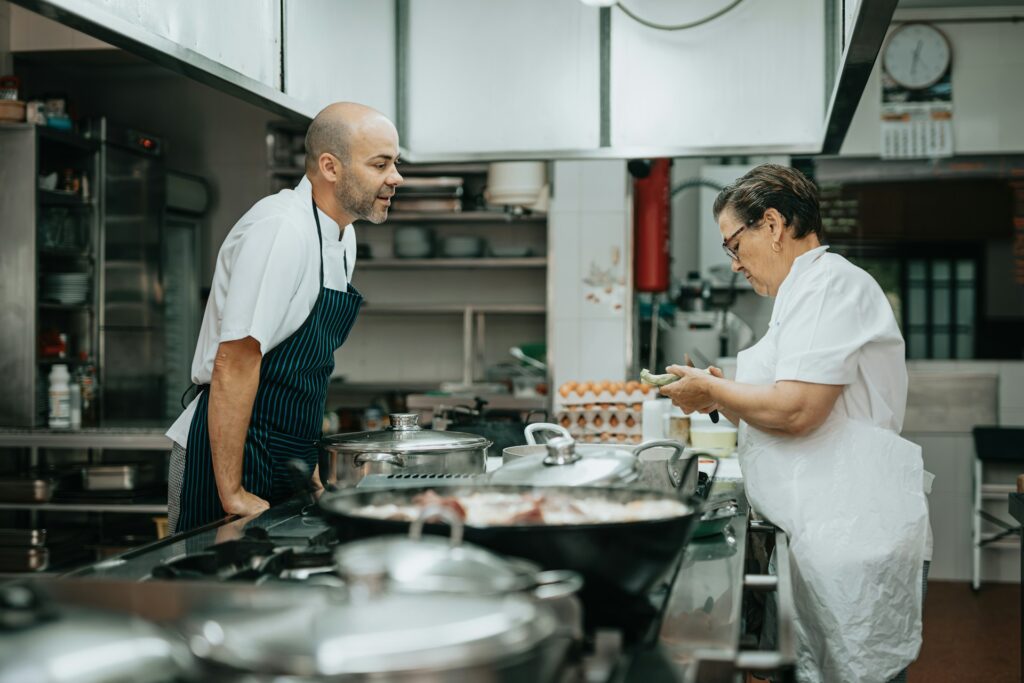
Uniform & Knife Know-How
When you turn up for your trial shift or stage session, it’s essential that you’re prompt, giving yourself enough time to get changed for the day and meet everyone in advance of your shift starting.
The restaurant will expect you to bring your own chef’s whites (short sleeved is fine unless otherwise stated), chef trousers made for professional chefs specifically (black is best), chef’s shoes and a set of knives and sharpener. The restaurant will provide you with an apron and any other specialist kitchen equipment required for your role that day.
That said, it should be noted that some establishments are now a little more informal in their attire, and may only require you to wear a white or black t-shirt instead of chef’s whites. Ask the head chef about this in your correspondence prior to your trial or stage beginning.
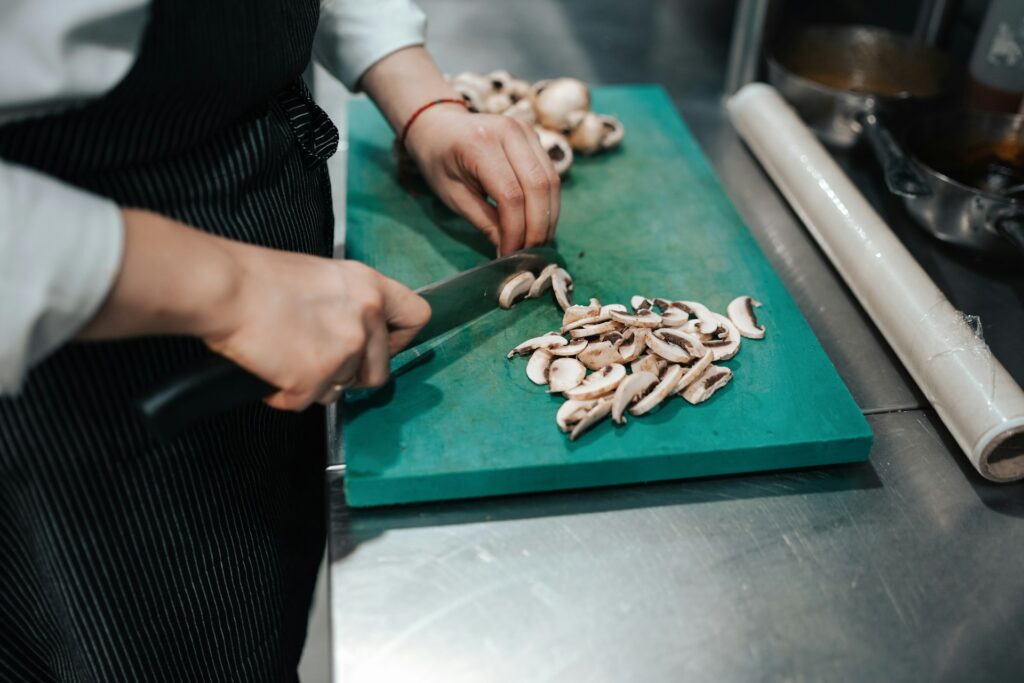
Whilst many facets of an aspiring chef’s role have become somewhat more relaxed in recent years, having a good set of clean, sharp knives is absolutely non-negotiable in any self-respecting professional kitchen.
You should, at the very least, have a set of three in your knife roll; a chef’s knife, a serrated bread knife and a paring knife. With these to hand, there will be nothing you can’t handle when it comes to chopping.
Other useful additions to your block or roll would be a filleting knife for precision fish prep and a boning knife for making light work of butchery. Almost as essential is a proper implement for sharpening; chefs tend to favour a wet stone, but a steel also works well. Put simply, your output (and job prospects) will be greatly improved with a few simple investments.
If you’re seeking a chef’s role with a finer focus on your work/life balance, then check out these 5 IDEAL chef’s jobs with more sociable hours.


